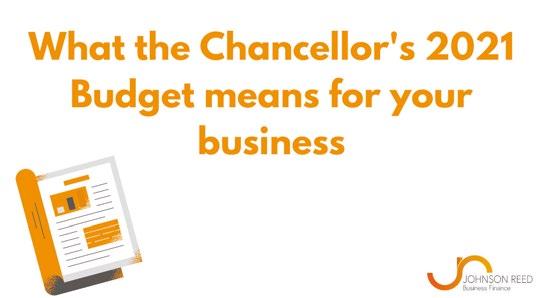
3 minute read
The Budget: What it means for SMEs and what to do next
On Wednesday, 3rd March, Chancellor Rishi Sunak announced the Government’s latest Budget, perhaps the most significant for businesses in recent times due to the events of the last 12 months. We’re breaking down the key policies affecting British small and medium enterprise (SME) businesses, how they trade, pay tax and the effect on jobs. In addition, we highlight how businesses can start to re-launch their recovery and invest, build and grow their businesses as a result of the measures featured in the budget and the recent road to recovery. VAT Reduction
The temporary 5% reduced rate of VAT has been extended until 30 September 2021, supporting tourism and hospitality sectors. After this period, the rate will increase to 12.5% for a further six months until 31st March 2022, before returning to 20%.
Corporation Tax
Job Retention (Furlough) Scheme
The Coronavirus Job Retention Scheme has been extended until 30 September 2021. Employers can continue to claim 80% of wages up to £2,500 per month up until the end of June, reducing to 70% in July and 60% in August and September as employers will be expected to pay 10% towards the hours their staff do not work in July, increasing to 20% in August and September, as the economy reopens.
Restart Grants
The rate of Corporation Tax will increase to 25%, but will not take effect until 2023, for businesses with profits of more than £50,000. For those companies below this figure, the figure will remain at 19%.
Now that we know what the immediate future is for jobs, tax, grants and loans, with a speculative road map for the re-opening of gyms, restaurants, bars and retail, among other businesses and sectors, we are looking to support those businesses that want to re-launch and secure funding to improve their cash flow, and get their businesses back where they should be.
One off cash grants of up to £18,000 for hospitality, accommodation, leisure, personal care and gym businesses in England.
Recovery Loan Scheme
A new loan scheme to support access to finance for UK business as they grow and recover from the disruption of the COVID-19 pandemic. Similar to the CBIL Scheme Johnson Reed has been providing to businesses since March last year, it will be accessible to limited companies affected by COVID-19, offering term loans, asset finance and invoice finance. The scheme launches on 6 April and is open until 31 December, subject to review, and we will continue to keep our customers and suppliers updated. However, before April, the CBIL Scheme is ending on 30th March, this is the last opportunity to secure funding with 12 months of no repayments and applications are still being accepted.
Business Rates Holiday
The business rates holiday in England has been extended by an additional three months, meaning retail, hospitality and leisure properties in England will pay no business rates for three months from 1 April when combined with Small Business Rates Relief, with further relief available for the rest of the year.
Secure funding
With the government offering grants and the Recovery Loan Scheme to support businesses in their re-launch, it is important that business owners make the most of this opportunity to secure funding that could be key to helping them get under way again. The CBIL Scheme is ending on 30th March, giving businesses 4 weeks to submit their final applications to secure funding under the current criteria. Whatever business you own, you need to be sure that you are covered for the next 6, 12, 18 months and beyond, as the last 12 months have taught us that anything can happen in business, and whilst these options are available it is essential that you guarantee your business can sustain and grow for years to come.
Invest in equipment and assets
Sectors such as leisure and hospitality are likely to boom when life returns to normal. People want to go to the gym again, eat out, have a drink and enjoy their spare time, and it’s going to be a competitive market. This is why we’re encouraging British businesses to get a head start









